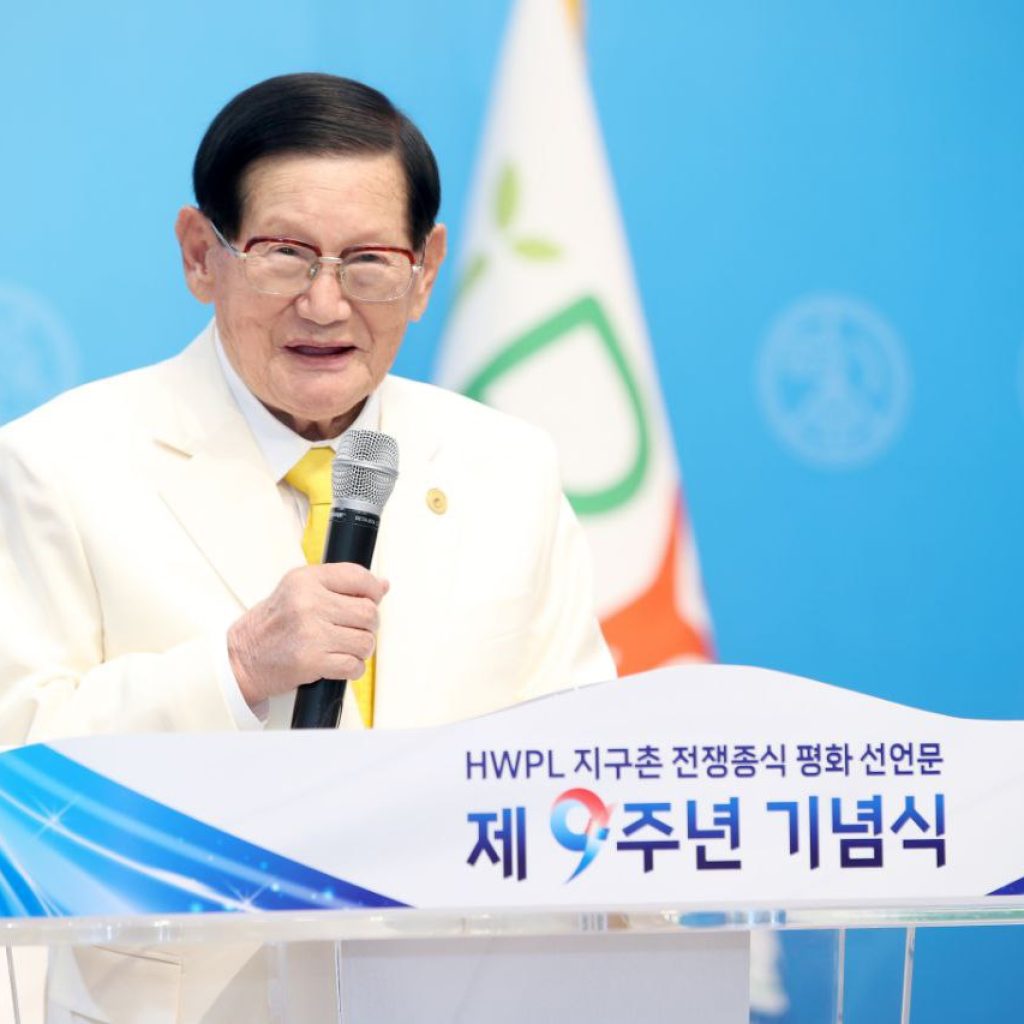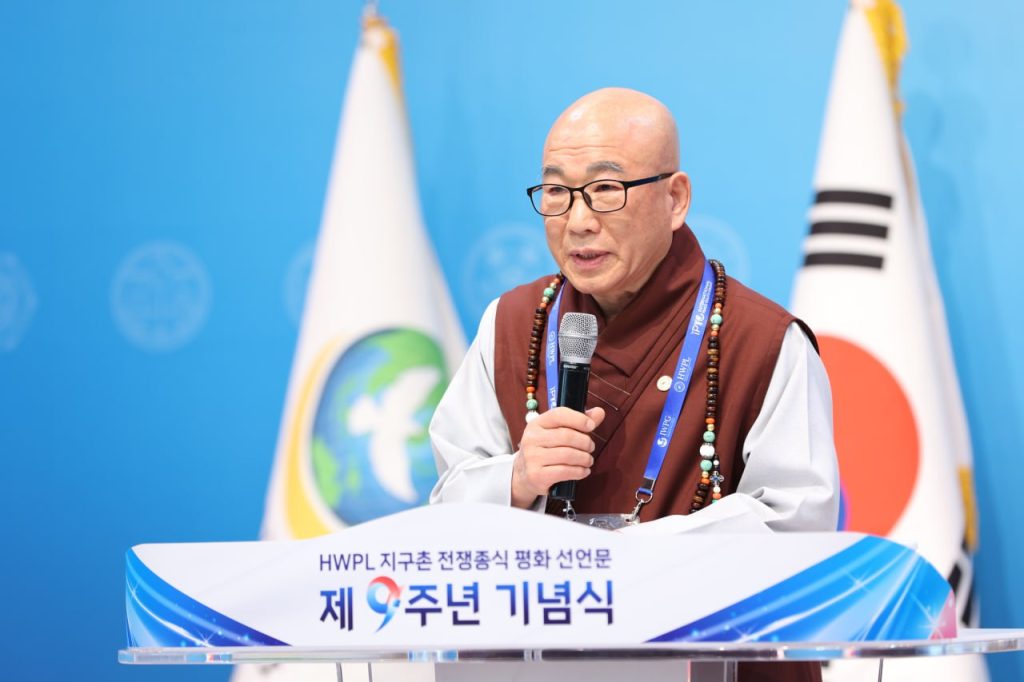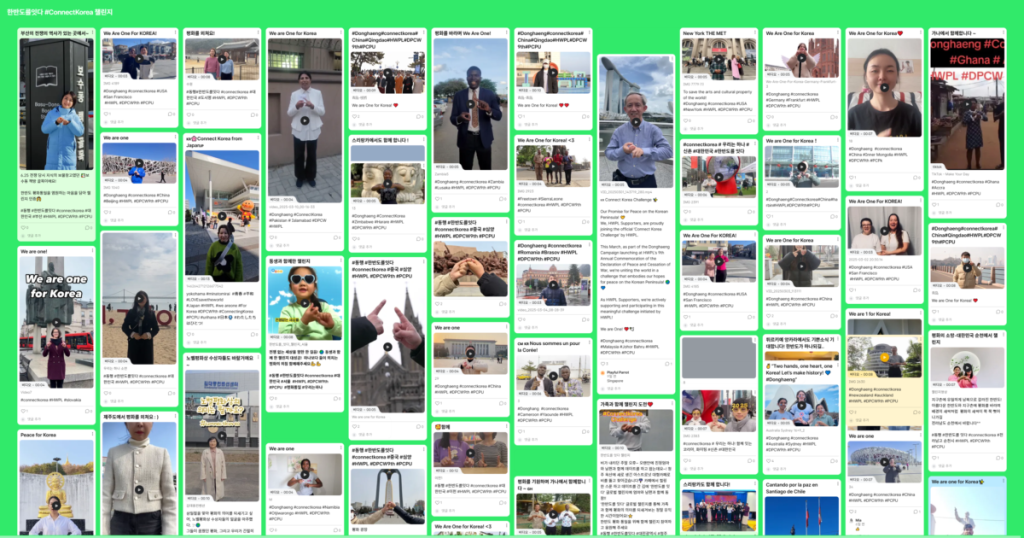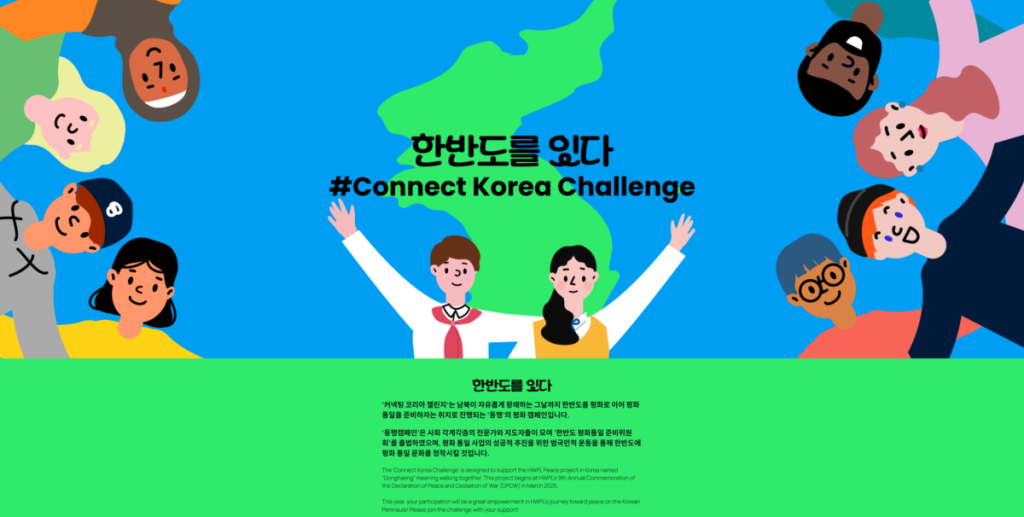
Spearheaded by HWPL, a UN ECOSOC-accredited international NGO, the <Together: Connecting Korea> campaign, involving approximately 170 civic groups, aims to foster communication and harmony across Korean society. The newly formed committee will focus on expanding socio-cultural exchanges between North and South Korea and establishing a robust foundation for future unification.

HWPL Chairman Lee Man-hee said, “The expeditious path to unification lies in the implementation of free movement. It is imperative that we pursue unification through constructive dialogue without force. Our country must become a testament to peace. We should work together thereby future generations can be happy and our wishes can come true” and presented a vision for peaceful unification on the Korean peninsula.
Ven. Seok Yeonhwa, Chairman of the Supreme Patriarch of the World Buddhist Sangha Council, detailed the committee’s future plans by saying, “We will unite people’s hearts through campaigns, expand the public understanding and support for unification through education, and conduct research on post-unification social and economic integration.”
Kim Yeong-geun, the 32nd Rector of Sungkyunkwan emphasized the critical role of civilian exchanges, calling for “a legal and institutional framework to ensure their continuity, regardless of political shifts.”
A cornerstone of the event was the presentation of a draft of “The Constitution Establishing a Unified Korea” by Professor Ciarán Burke of Friedrich-Schiller University Jena. Developed by the HWPL International Law Peace Committee, this draft establishes legal foundations for a unified Korea, including denuclearization goals and a peace system that protects citizens’ rights and welfare. “(This initiative) will be furthering the cause of Korean unification, of future stability, and ensuring that the region – and the world – is likely to remain a more peaceful place,” said Prof. Ciarán Burke.

The Together Campaign’s “Connect Korea Challenge” (https://togetherconnectkorea.kr/) is actively promoting unification through advocating free movement and international support. Within 10 days, participants from 243 cities across 72 countries contributed over 1,350 pieces of content, demonstrating global interest in a peaceful unification on the Korean Peninsula.


